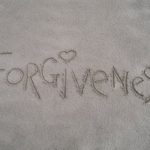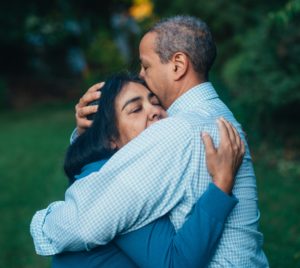We think that forgiveness is weakness, but it’s absolutely not; it takes a very strong person to forgive. T. D. Jakes
Provided to you by Guest Writer: David Chaloner, Life Processes Therapist, Auckland, NZ
If it is true that a full and ‘whole’ life is one of an unconditional relationship with ourselves, then the relationship with errors, hurt, betrayal, guilt and shame has to come into balance, if internal peace is to be obtained. And that implies forgiveness.
All major religions and faith systems speak of the need to forgive. Mainly because, as part of the human condition it is a hard state to achieve in relation to others and particularly hard with regard to self-forgiveness.
HOW DO WE FORGIVE?
A special challenge lies in the idea that it is a singular event.
Another is that it enables the perpetrator to get off the hook without consequence.
Neither are true. Rather than it being ‘an event’, (which incidentally it can be), it can also be a gradual process of slowly releasing the grip of a circumstance that binds us to a person, or to our own past.
“If you want to see the brave, look on those who can forgive.” (Bhagavad Gita)
Recovery from the pernicious grip of substances and life harming behaviours includes much discussion of forgiveness. Even where ‘recovery’ is seen as self-actualised without regard for any notions of Higher Powers; it is an integral part of letting go a past and its ability to negatively impact the present.
A useful experiment is to deliberately experience the feeling of being forgiven for a transgression.
 Then, deliberately experience the feeling of forgiving oneself for what is regarded as a major self- transgression, or something that has made you judge yourself as ‘less than’.
Then, deliberately experience the feeling of forgiving oneself for what is regarded as a major self- transgression, or something that has made you judge yourself as ‘less than’.
Self forgiveness is as essential as forgiving others in enabling full inter-connectedness. It is a continuing act until it is possible to experience oneself as in any way whole.
“No person should be judged on the basis of the good or evil done.
The DEED can be judged, but not the person.” (The Cloud of Unknowing).
One definition is that it is a conscious decision to release feelings of resentment or vengeance toward someone (or an institution), who has harmed us, regardless of whether they “deserve” it.
It does not mean condoning or excusing, but it does allow us to become free of the connection.
Forgiveness is a free gift (grace) that releases the forgiver.
Life comes to us through unmet needs with afflictive processes: ailments, addictions, misfortunes, inner trials. These are too often viewed as personal failings for which we blame ourselves.
It is a False Self, compensating by seeking control and righteousness.
Inner transformation is the true journey and forgiveness is one of the road maps in this.
Forgiveness is not for the perpetrator. It is a letting go of our victimhood.
If wholeness is a key then complete acceptance of the shadow aspects of ourselves is crucial. Forgiveness of self; no condoning, no excusing, amends, then forgiveness. Then freedom.
If you liked what you heard here, please pass it on for others.


